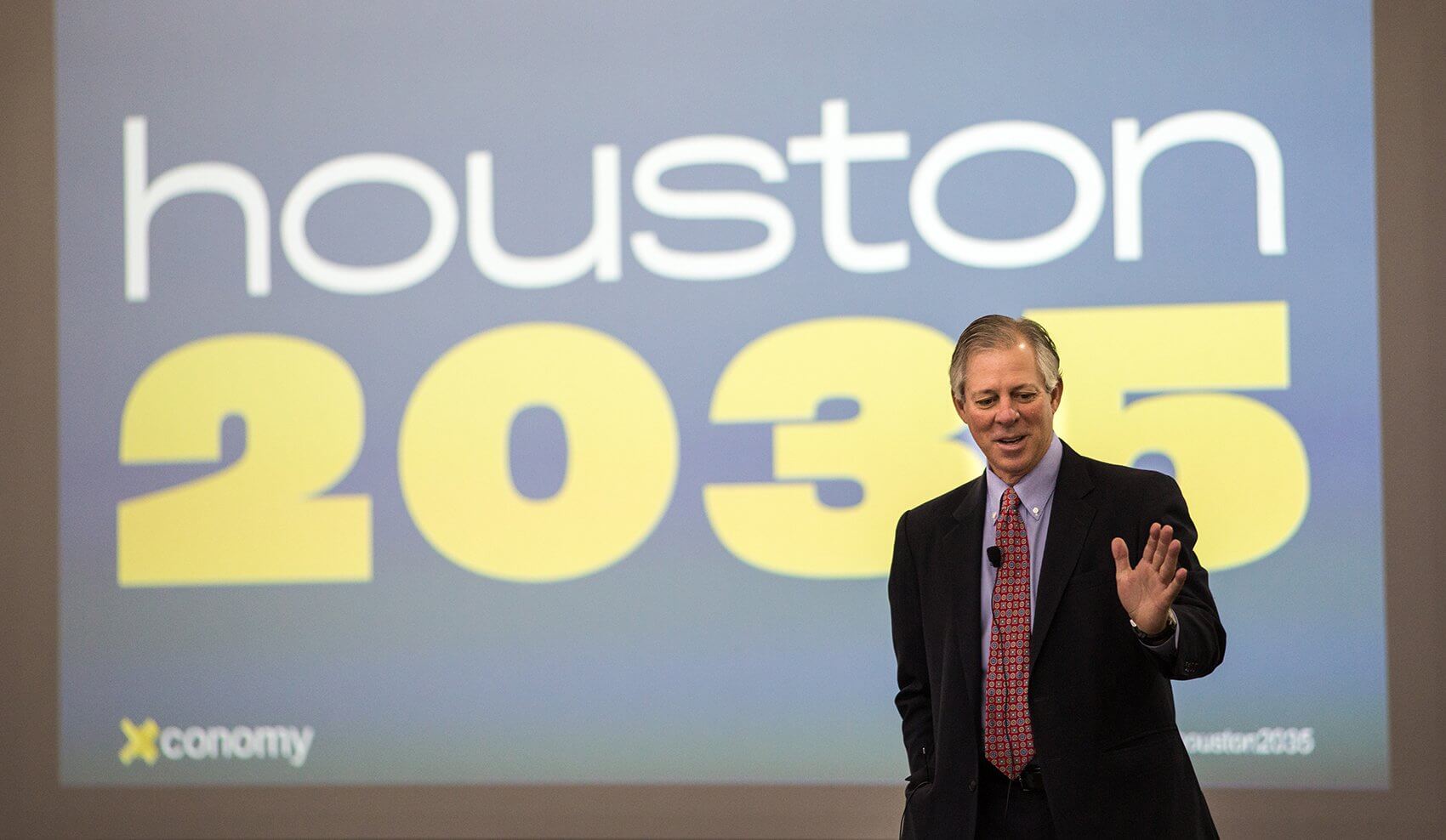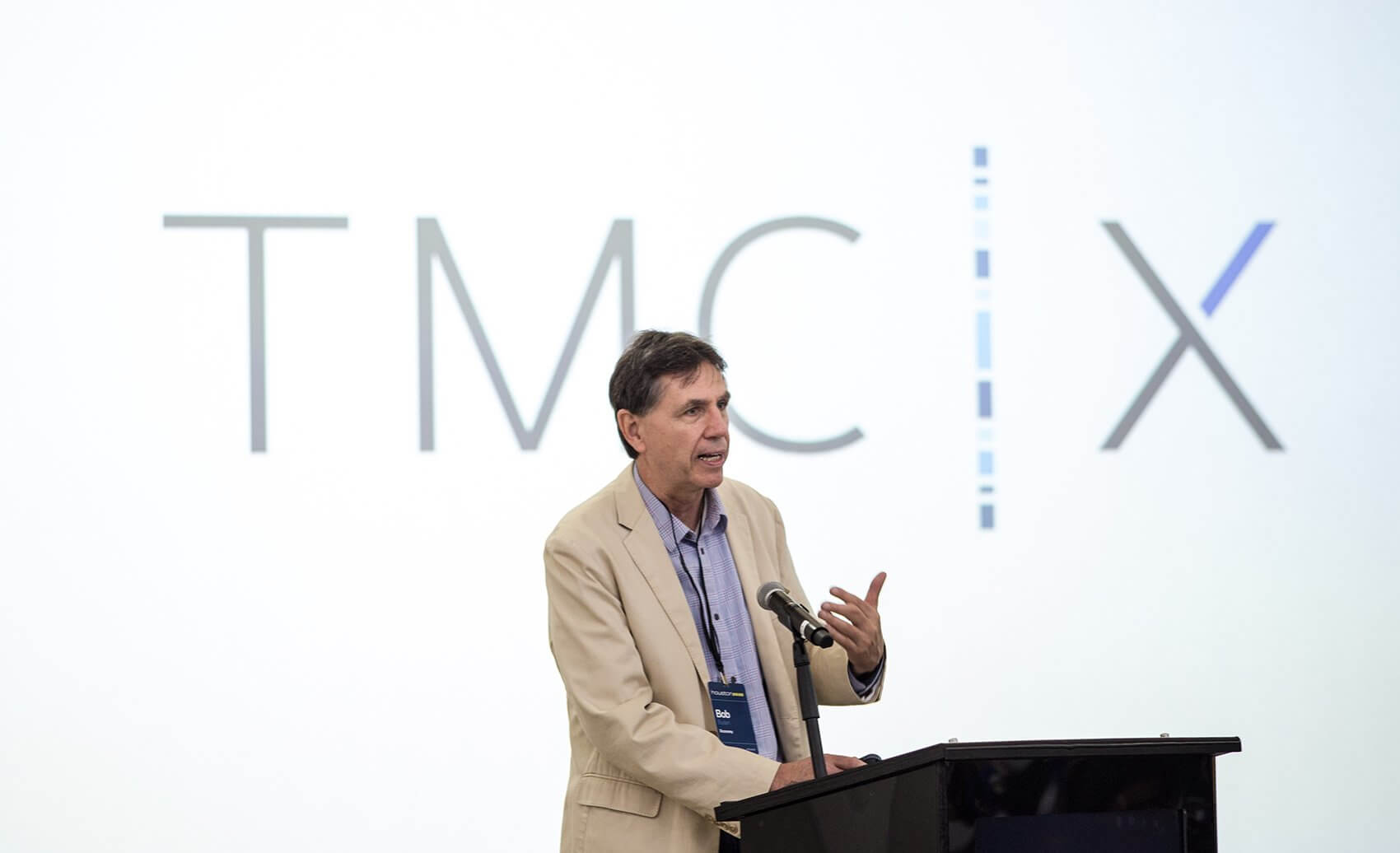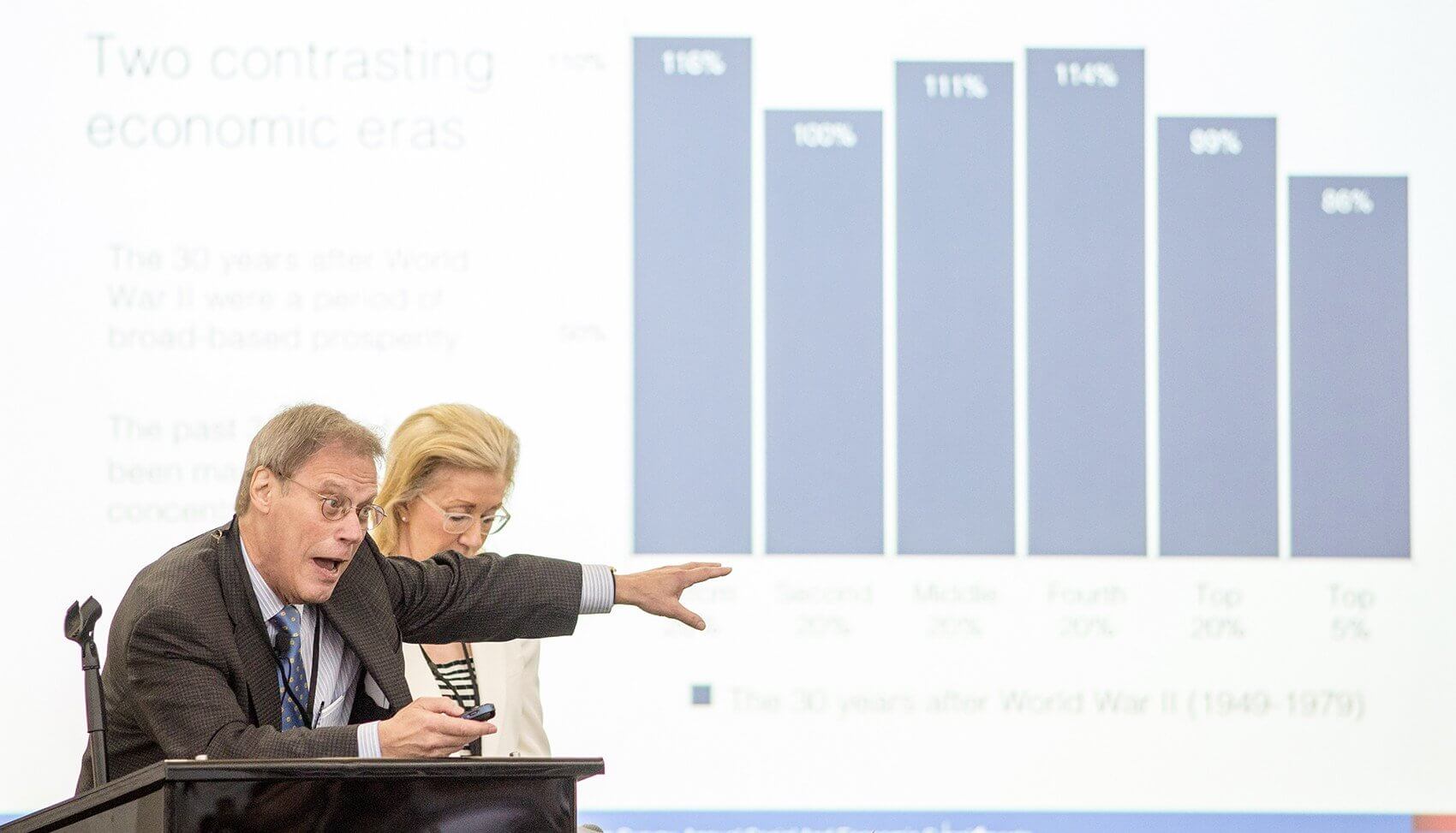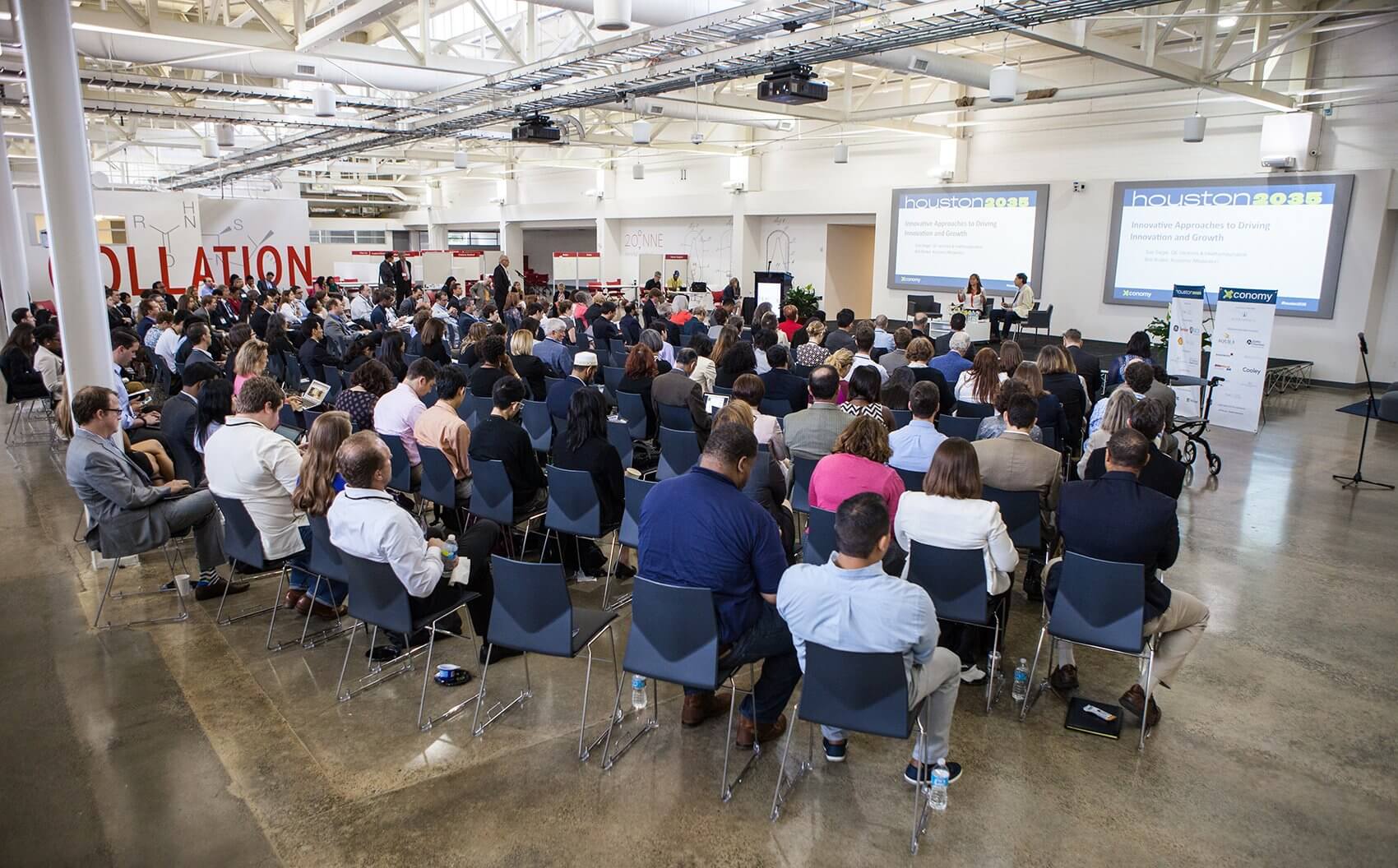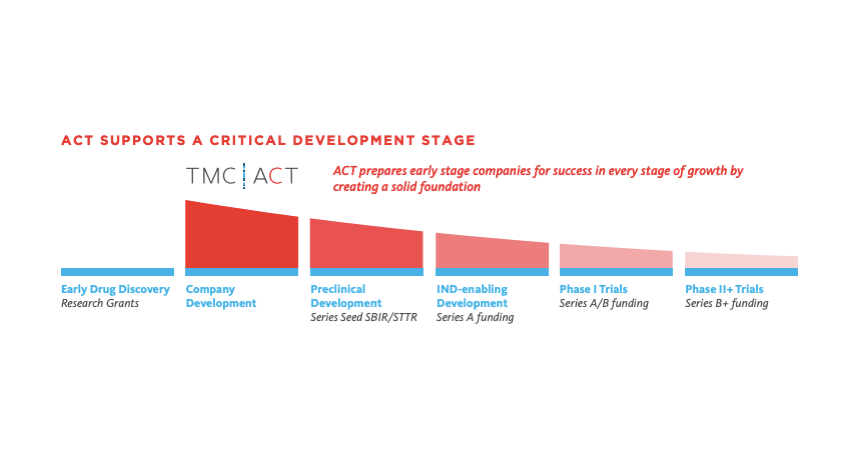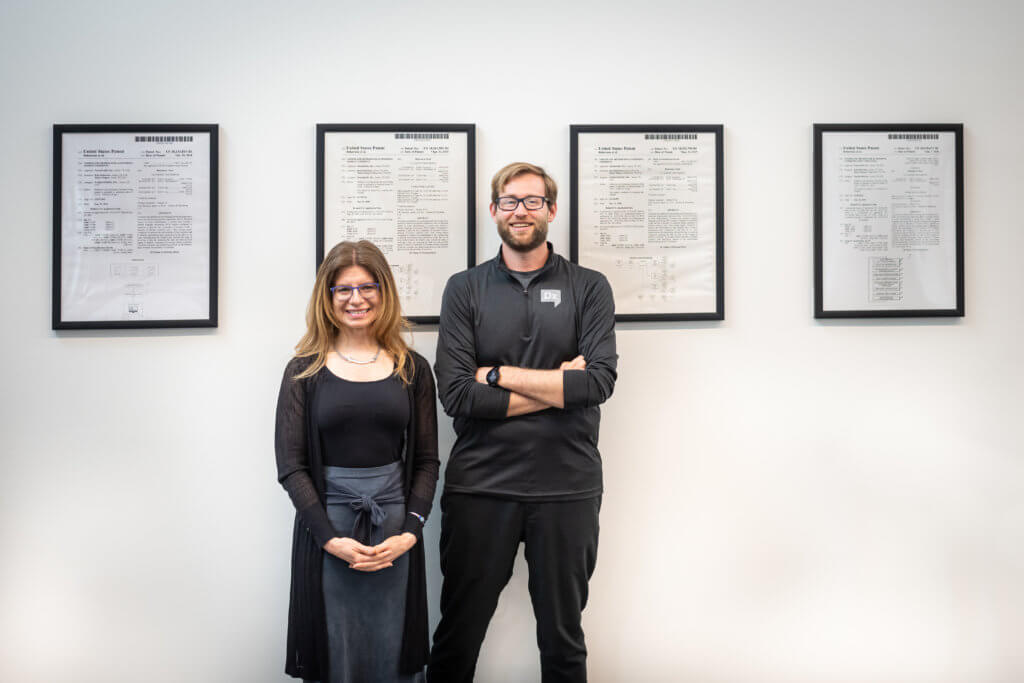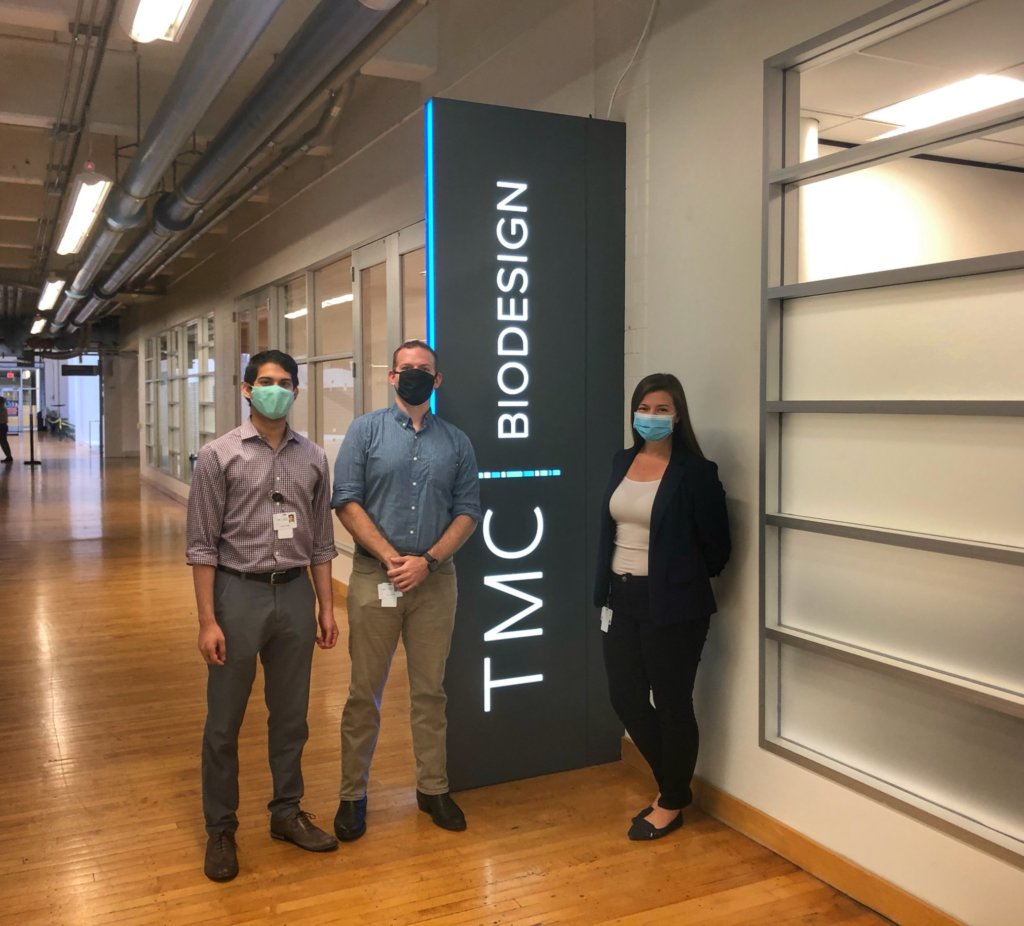At Houston 2035, Participants Explore How To Create The Innovation City of the Future
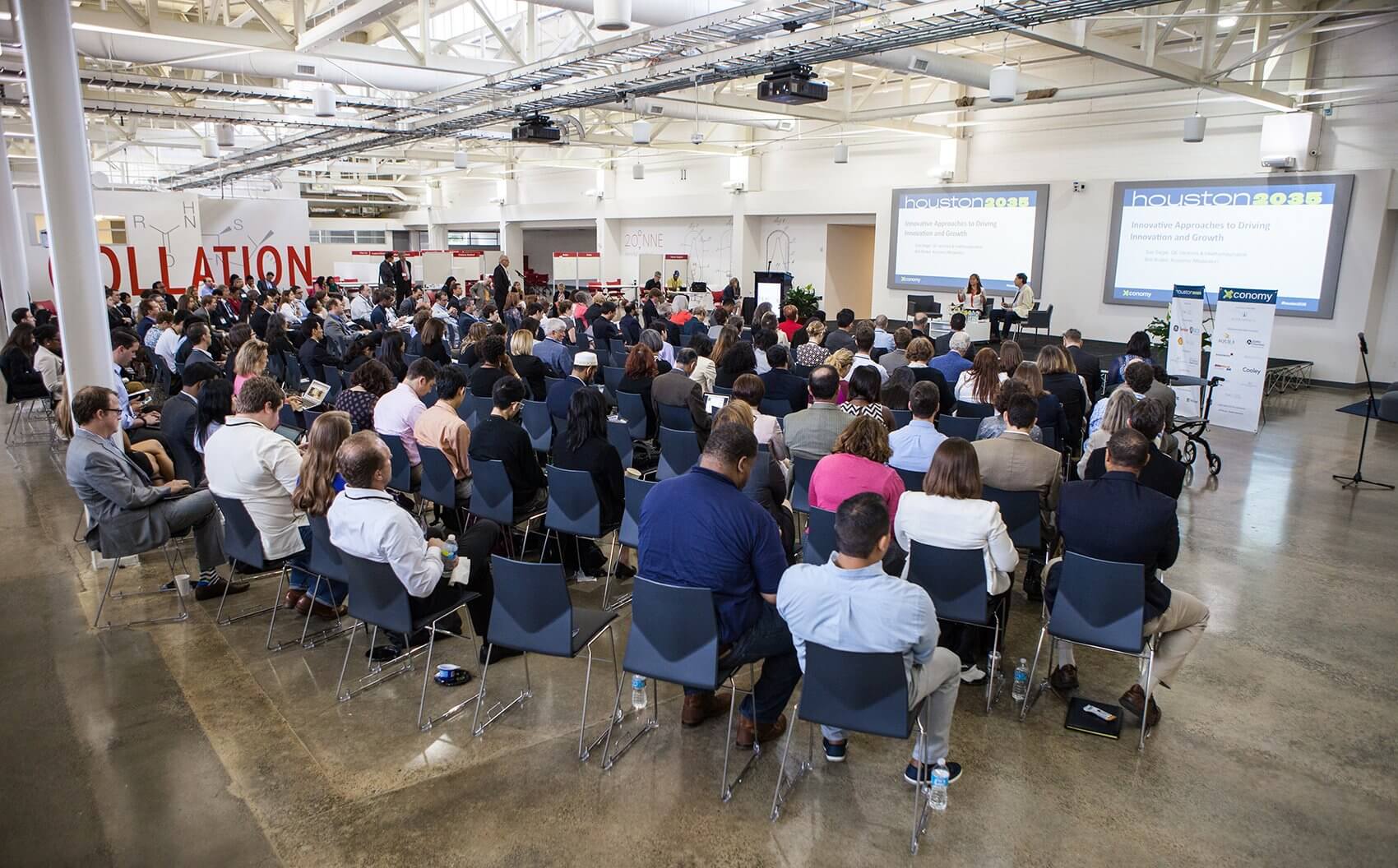
From time to time, the 100,000 square feet of space that constitutes TMCx can feel cavernous and sparsely populated, as entrepreneurs work diligently around the fringes of the facility and meetings are held throughout an array of private conference rooms. That was far from the case on Thursday, May 21, when a packed house of 300 thought leaders, stakeholders and members of the life science community from Texas and across the nation created a temporary hub of collaborative potential. The connective tissue binding everyone together? A look into the future.
“I’ve spent 34 years of my life studying this city and now I want to remind us of how dramatic the changes in Houston have been,” said Stephen L. Klineberg, Ph.D., professor of sociology at Rice University and founding director of the Kinder Institute for Urban research, before chronicling the demographic makeup of the city and the ways that it’s evolved over the years. “We can predict some pretty powerful things about what Houston in 2035 is going to look like. Even more importantly, we can predict how we’ll collectively respond to these opportunities and challenges in building a Houston that will be positioned for success in a very different world in the 21st century.”
At Houston 2035, a unique platform for both the local and national community to explore possibilities for the city in the next few decades, attendees simultaneously reflected on the past and scanned the horizon. Developed by Xconomy, a news and events organization focused on the business of technology, and held at TMCx, discussions spanned the worlds of health care, energy and education, as well as infrastructure, design and urban development.
Leveraging the city’s diversity was a common thread in cultivating a destination renowned for innovation and discovery.
“How do we ensure that our city’s ethnic diversity becomes a tremendous asset in the global economy?” asked Klineberg. “If Houston’s going to succeed, we have to turn ourselves into a destination of choice, a place where people who can live anywhere will say, ‘I want to live in Houston Texas.’ The source of wealth in Houston in the 21st century will have to do with attracting the best and the brightest people in America.”
Attracting accomplished and talented individuals to Houston will continue to serve us in the future, echoed Ferran Prat, Ph.D, vice president of strategic industry ventures at The University of Texas MD Anderson Cancer Center.
“The type of talent that is being brought to MD Anderson is just one example of the fact that if you bring the best people with the best ideas […] that will create a virtuous circle like we have in Boston or San Francisco,” he said. “We are witnessing just the beginning here in Houston. It’s already happening.”
At the Texas Medical Center, driving access in a faster, more efficient manner is everything, reflected William F. McKeon, executive vice president and chief strategy and operating officer of the Texas Medical Center.
“That’s what will differentiate us,” he said during a panel on the future of health care. “We have the size and the stature, but we’ve really never leveraged that cohesive opportunity in an organized way so that we can streamline and find the best therapies, the best medical devices and the best digital solutions and validate them here.”
In addition to big-picture discussions of the evolving landscape of the city, several distinct predictions bubbled to the surface.
“In Houston, we have to lead the change from medical delivery to medical care avoidance,” said Brett P. Giroir, M.D., executive vice president and chief executive officer at Texas A&M Health Science Center. “The future of health care is not about creating a more effective way to treat patients, it is about avoiding keeping patients healthy, lowering patient costs and improving the patient experience.”
“I think we’re going to have implantable and non-invasive sensors by 2035,” added retired Col. John Holcomb, M.D., director of the Center for Translational Injury Research, chief of the Division of Acute Care Surgery and vice chair of the Department of Surgery at UTHealth, and director of the Memorial Hermann Texas Trauma Institute. “Why not have your physiologic data hooked up to the cloud, and before you have anything from a heart attack to pneumonia, you get a tweet that tells you to go directly to the distributor to be treated for the stroke you’re about to have before it happens?”
According to Bill Aulet, managing director of the MIT Martin Trust Center for Entrepreneurship, the broad continuum of demographic and socioeconomic diversity in Houston has the potential to be a boon for entrepreneurship.
“In Houston, you have this educational opportunity in front of you—there are great universities here, starting with Rice—and you have this diverse demographic,” he said. “Let me tell you, great entrepreneurs start in unlikely ways. They don’t come from the upper class, usually.”
Entrepreneurs themselves were given a chance to shine in the form of “Innovation Bursts”—dense, five-minute pitches peppered throughout the day’s presentations. From surgical wound closure to a social platform for women in the energy sector, some of the most striking glimpses at the future were reflected through the prism of today’s innovations.
“To be the most adaptable city in the world, Houston needs to be the city with the most big ideas,” said Henk Mooiweer, Ph.D., whose title of GameChanger at Shell underscores his commitment to dreaming bigger. “If you think about it, we cannot afford to be waiting to solve issues in health care, education, transportation, energy and water. You can actually force serendipity, and Houston needs to do exactly that by connecting the dots to come up with big, revolutionary changes. It takes courage and it takes time, but wonderful things may happen.”

